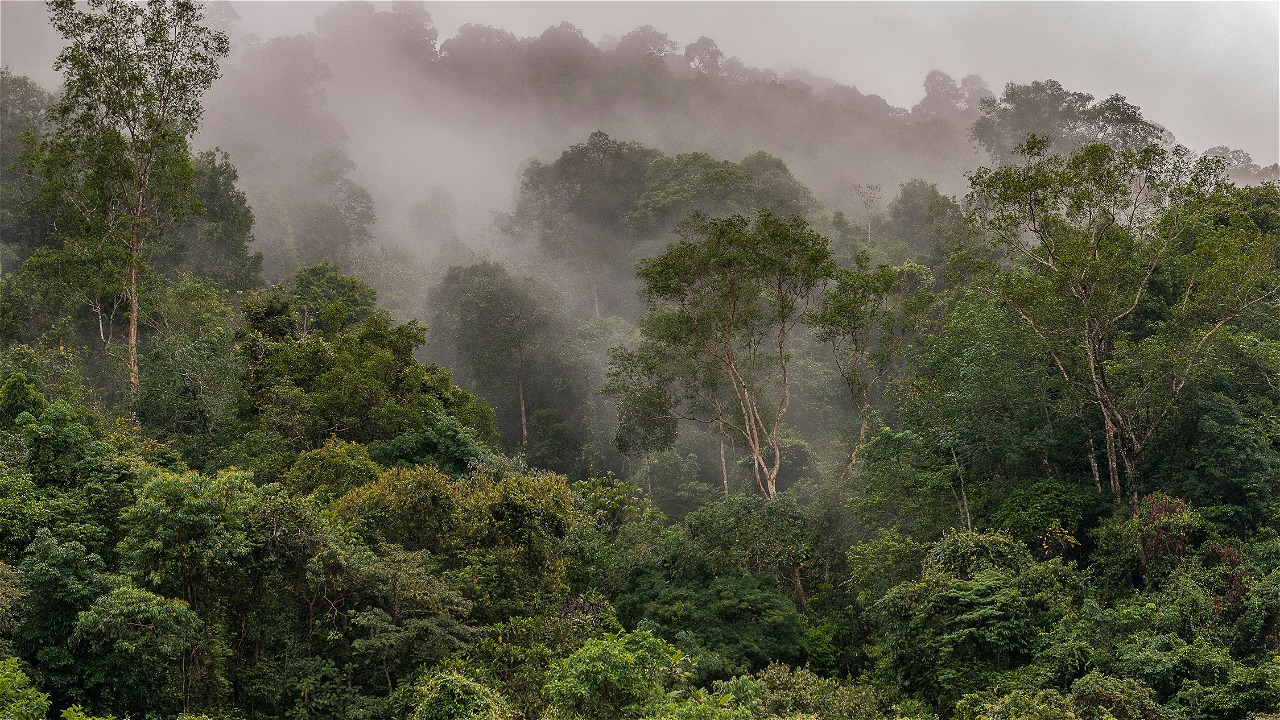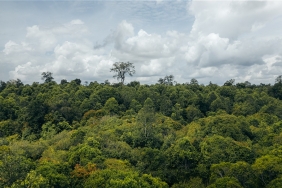GFTN-INDONESIA ORGANIZES “20+ FOR INDONESIAN FOREST"
By Ciptanti Putri
Jakarta (03/11)-Taking place at the American Cultural Center, @America, on November 2, 2011 WWF-Indonesia celebrated the 20th anniversary of the Global Forest & Trade Network (GFTN) initiative. The celebration was filled with a talkshow and group discussion titled, "20+ for Indonesia's Forests."
The event opened with opening remarks from WWF-Indonesia CEO, Dr. Efransjah. He recounted the history of the GFTN initiative, which is none other than WWF's response to the problem of illegal logging that was rampant 20 years ago.
"The GFTN initiative is in line with WWF's goal, which is the preservation of nature so that it can continue to be utilized by mankind in the future," he said. Efransjah also stated that GFTN is ready to become an independent institution to certify forest industry commodities in Indonesia. "Unfortunately, after working since October 2003 in Indonesia, only 1/30 of our total production forests are credibly certified by the FSC (Forest Stewardship Council)," he continued. This illustrates how the discourse on sustainable forest management still requires attention and hard work from many parties.
Responding to the statement about the government's seriousness towards the discourse of sustainable forest management, the Indonesian Minister of Forestry, Zulkifli Hasan, who was also present to give his remarks, pointed out that since 2010 the government has declared its commitment to no longer allow all efforts to destroy and concession forests and prohibit the conversion of peat forests or what is known as a forest moratorium.
"We no longer issue new HPH licenses. The government is now fostering and supervising the old HPH holders to manage the forest well," he said. He said that in the past two years, the government has tightened certification for the national timber import industry, and fully supports efforts to rehabilitate nature through forest planting. "Therefore, we support WWF-Indonesia's program to restore the ecosystem in Jambi, and give the management of Bukit 30 to WWF-Indonesia."
Going into the talkshow, the panelists consisting of Poltak Hotradero (Economist from the Indonesia Stock Exchange), Nana Suparna (Deputy Director of the Indonesian Forest Entrepreneurs Association), Iman Santosa (Director General of Forestry Business Development), and Mas Ahmad Santosa (Environmental Law Expert and Lecturer at the University of Indonesia) engaged in an interesting discussion about sustainable forest management. The audience consisting of high school students, university students, forestry industry entrepreneurs, journalists, bloggers, and the general public were enthusiastic in their responses and questions.
Poltak said that Indonesia's economic growth until mid-2011 had reached 6.5%, despite the fact that the trend was declining due to the crisis in European countries. "Compared to 20 years ago, Indonesia was nothing. But now, with its incredibly rich natural resources, Indonesia is a world economic power," he said firmly. Therefore, efforts to preserve forests and increase the economic value of forest products are important because forests are capital for the prosperity of the nation.
"Indonesia's timber exports rank fifth, far below coal exports. This shows that the economic value of wood as a forest product is still low compared to coal as a mining product, which needs to be the concern of all of us," he added.
From the Indonesian Forest Entrepreneurs Association/APHI, Nana Suparna raised three important points in sustainable forest management. The first is the value addition of forest commodities so that entrepreneurs do not change the designation of forests in their business. Second, the need to encourage mutually beneficial partnerships with communities around industrial forests so that they participate in maintaining forest sustainability. Third, Nana emphasized the importance of a spatial planning law with a long-term vision.
"Currently, spatial management of forestry land is planned in the short term, 5 years. After that, it always changes again. This disrupts the forestry business, which has an average lifespan of more than 5 years," Nana explained. If this continues, entrepreneurs will choose to change the forest designation.
Meanwhile, Director General of Forestry Business Development Iman Santoso stated that in the next 20 years there will be complexity in management and providing opportunities for all parties to utilize the forest. "In addition to the forest being degraded so that it must be replanted, legal certainty is also needed in its management," he said.
Responding to the legal problems, Mas Ahmad Santosa emphasized that the legal system in Indonesia still needs to be improved because it does not support sustainable forest management, and there is often disharmony between local regulations and laws so that law enforcement in the field becomes difficult.
He also mentioned the lack of forest rangers in the field, known as "Forest Rangers." According to him, the area of Indonesia's forests is not proportional to the number of rangers deployed to guard the forest area.
"Ideally, the ratio of rangers to forest area is 1:5000 hectares. But the reality now is that one ranger has to guard 17,000 to 18,000 hectares," Mas Ahmad explained.
Although present at the end of the event, Prof. Dr. Emil Salim gave a comment statement that "challenged" WWF with its GFTN initiative. "The object of the GFTN initiative is only to protect the timber industry, it is still insufficient. Indonesia is an archipelago on the equator that has the greatest terrestrial and marine biodiversity in the world. WWF with its GFTN must step on the gas to add value to this natural wealth," he said. Emil urged WWF, MoF, and other partners to work together to add value to the forest, so that it is not just exploited for furniture products alone (timber industry).
GFTN works in more than 30 countries with 800 members in Europe, North America, Latin America, and Southeast Asia. In Indonesia, GFTN was launched on October 16, 2003, under the name "Nusa Hijau". In 8 years GFTN has certified 2 million hectares of industrial forests in Indonesia, issuing international certification from FSC (Forest Stewardship Council) and national certification from LEI (Indonesian Ecolabeling Institute).





